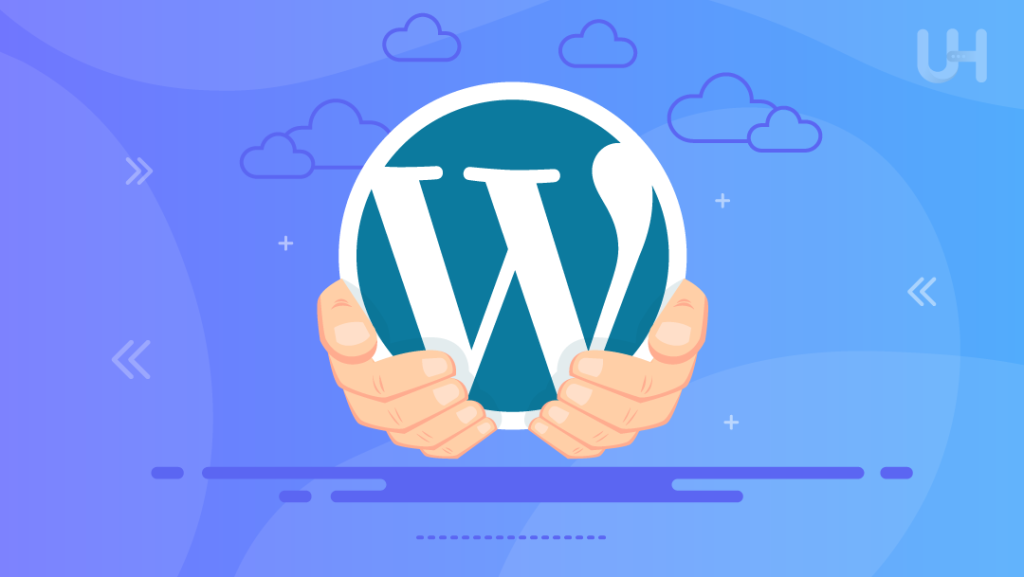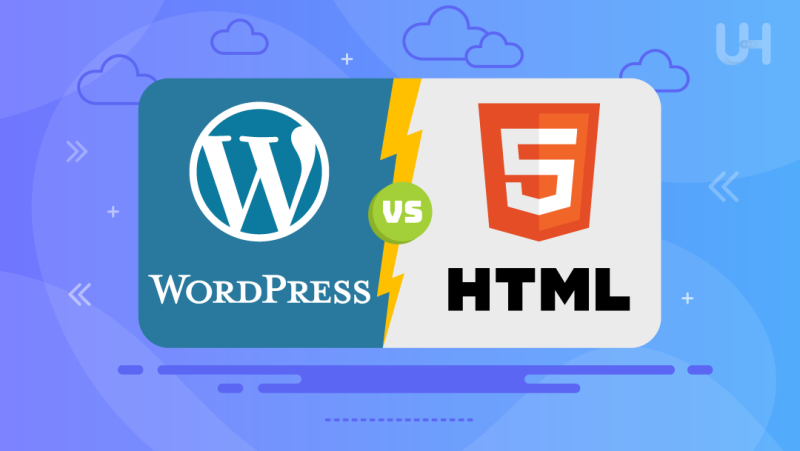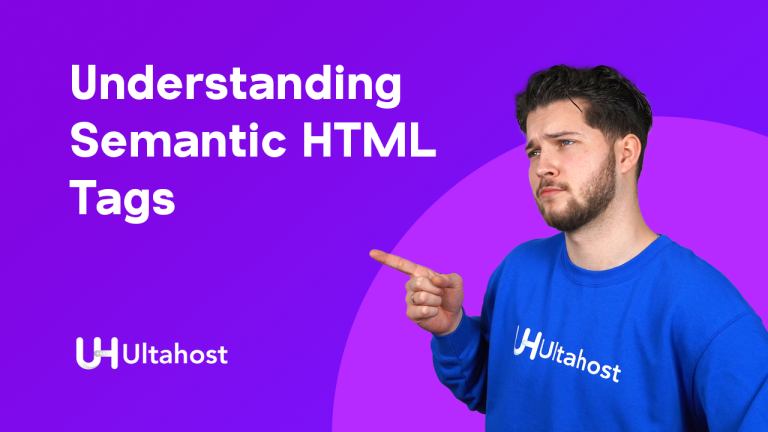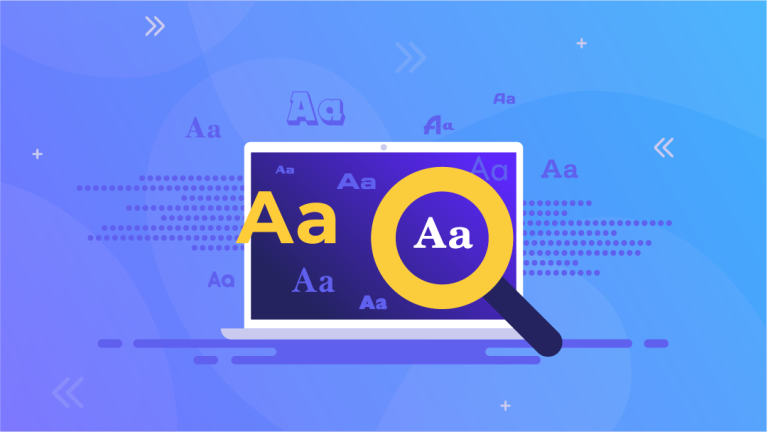WordPress vs HTML is a competition between two camps that build websites. Coding is the process of creating a website using HTML, and it might be difficult if you have never been to this. On the other hand, WordPress’s existence makes it easier for you to manage your content without knowing HTML. Both creators have their pros and cons it depends on what you are looking for.
In this article, we will cover the fundamental differences, pros and cons, usage, user interference, and hosting of WordPress vs HTML and tell you which one is better: WordPress or HTML.
HTML vs WordPress – The Comparison
WordPress vs HTML both have different levels of functionality and complexity. WordPress is a content management system that builds dynamic websites using PHP and databases. HTML is a markup language used in the structural development of web pages and their content.
HTML
Before wordpress came into being, most websites were built by using the ground of HTML. A Hypertext Markup Language is the foundation of websites and supports the internet by being its backbone. HTML sites are hard-coded and must be presented strictly as intended, classified as static HTML sites. The builders face complexity because large static HTML sites are time-consuming and cost more than website builders.
The fundamental units of an HTML page are HTML elements. Images and other objects, including interactive forms, can be embedded into the produced page using HTML structures. By indicating structural semantics for text elements like headings, paragraphs, lists, links, quotations, and other objects, HTML offers a way to generate organized texts. Tags, which are written in angle brackets, are used to distinguish HTML components. Content is introduced into the page directly via tags like <img> and <input>. Sub-element tags may be included in other tags like <p> and </p>, which enclose and offer information about the document text. Browsers use the HTML tags to read the page’s content, but they are not displayed.
WordPress
By offering tools (such as the WordPress editor) that let non-developers create a website without knowing a thing about HTML, CSS, or JS, WordPress streamlines the process of creating websites. Unlike static HTML pages, WordPress sites dynamically produce content (the HTML finally rendered for the browser) from a database upon page load. This enables website owners to use one of the top content management systems (CMS) to update the entire website. For a customized look and feel, users may add plugins and themes. You have complete control over the front end of your whole website with the simple-to-use visual block editor.
With influential website builders like Divi and Beaver, you can easily create themes and other components of your website with little to no coding knowledge. Many websites, including blogs, e-commerce websites, portfolios, small business websites, and more, may be created using WordPress, a robust platform. Because of its user-friendly interface and extensive theme and plugin choices, creating and editing websites without any coding skills is more accessible. A complex website might be quickly developed using WordPress, but HTML takes weeks to complete (unless you use pre-made themes and JS libraries).
Usefulness – WordPress and HTML

The easy-to-use website creation process with its drag-and-drop builder, plugin addability, and dashboard offered by WordPress vs HTML could be adequate for creating a static website that can be updated infrequently.
WordPress
The platform’s admin dashboard is user-friendly and straightforward to use. Without in-depth technical skills, it enables users to manage wordpress website content easily. The dashboard and settings are essential for users to become familiar with to grasp WordPress fundamentally. This involves being familiar with installing plugins, adding and modifying themes, and using the block editor to make pages and articles.
A well-organized website may also be achieved by having a fundamental grasp of website structure elements like menus, headers, and footers. WordPress is an intuitive platform that makes website creation available to all users. Indeed, even people who aren’t familiar with coding. The web page design is made simpler by its visual block editor. With it, you may make reusable site templates, pages and articles.
HTML
On the other hand, developing a static HTML website will require a thorough grasp of HTML and CSS to construct, style, and create an eye-catching design. To add interactivity and sophisticated features, you’ll need to master more complicated languages like JavaScript; however, this isn’t required for basic websites.
This might be a challenging learning curve for individuals who have never coded. You must study HTML and its syntax to obtain a basic comprehension of the language. This includes learning how HTML tags are structured and how to use them to style text and construct simple website layouts. You must understand CSS to style your HTML website since it lets you add visual styles to the HTML code. Several well-known CSS frameworks, such as Bootstrap, can accelerate this process. However, there is still a lot to understand to apply the JavaScript framework and make modifications. Several resources are available for learning HTML and CSS, such as books on web development, YouTube lessons, online courses, and other site tutorials.
User’s Customization – WordPress and HTML
Customization is an essential factor in website building. Both WordPress and HTML provide different customization options for their customers.
WordPress
The ecosystem of WordPress themes, plugins, and integrations makes website customization simple. Thousands of paid and free themes are available for users to select from, depending on the look and feel of their website. Apart from themes, WordPress offers a wide variety of plugins for different uses. Users can add features without knowing how to code by browsing and installing plugins from third-party sources or the WordPress plugin repository. Some of the most fantastic plugins that enable website operation to be more accessible than with static HTML include:
- E-Commerce
- Page builders
- Form plugins
- SEO plugins
HTML
The author of a static HTML website must have total control over the layout and style of the website to customize it. Although HTML templates are sold, modifying them necessitates familiarity with HTML, CSS, and other web-based programming languages.
The ability to work with front-end development is required to modify an HTML website beyond its default layout and style. Enhancing a static HTML website with sophisticated features and interaction may be easier and more time-consuming with the proper knowledge. Dynamic features like animated menus, pop-up windows, and real-time form validation frequently require JavaScript. However learning JavaScript calls for a substantial time and energy commitment. Because of its complexity, programming principles beyond HTML and CSS must be understood.
Get The Perfect Hosting Service For Your Website!
Want your website hosting easily? Look for UltaHost hosting services and invest in their wordpress hosting. It will help enhance your website hosting and keep your website user-friendly.
Hosting – HTML vs WordPress
Web hosting is necessary for both HTML and WordPress websites to be available online. The service that hosts and makes your website’s files accessible online is called web server hosting. To meet the demands of website owners, hosting companies provide a range of plans with varying features, prices, and performance levels.
Static HTML webpages and WordPress websites have different hosting requirements. Since static HTML websites demand fewer server resources, they may frequently be hosted with less expensive basic shared hosting plans. Typically, FTP software is used to access the HTML files, which may be changed with any text or code with the HTML editor you choose.
WordPress websites usually use more server resources since they are dynamic and created instantly using PHP and a database. Because of this, most WordPress hosting systems are equipped with features that enhance security and performance, such as automatic backups, specialized caching, and optimized server configurations. One-click WordPress installations are available from many hosting companies, making it simple and quick for customers to install and configure WordPress. With the help of these installers, WordPress is installed with all required files and also a pre-configured database. Everything you need to know about selecting the best host is covered in our hosting guide.
Pros and Cons of HTML and WordPress

WordPress
When considering WordPress as your website platform, it’s essential to weigh its strengths and weaknesses to determine if it fits your needs. Let’s dive into the key pros and cons of using WordPress.
Pros
- Easy to use: WordPress requires no technical knowledge to get going.
- Eliminations: The requirement for coding knowledge is eliminated almost entirely.
- Administration: The platform is user-friendly for beginners to facilitate everyday website administration activities.
- Time Spawn: Its five-minute installation has made it renowned.
- Usage: Most tasks can be completed using its user interface rather than coding.
- Editing: You can create and modify pages and content, customize your website, and boost and control SEO.
- Open Source: WordPress is open-source and constantly evolving.
Cons
- Languages: You must master specific programming languages like HTML, CSS, and JavaScript.
- Plugins: Make more complex adjustments that aren’t possible with plugins or themes.
- Compatibility: Periodically managing and maintaining your website is necessary to ensure no compatibility problems.
- Up to date: You must keep your WordPress website and all its plugins and also themes updated.
HTML
Choosing to build a website with HTML comes with its own set of advantages and challenges. Here’s a look at the key pros and cons of using HTML for your web development projects.
Pros
- Backup: Fewer backups are required.
- Update: Since static HTML websites are rarely updated frequently, you only need to make a backup whenever you change.
- Scripting: You won’t have to worry about scripting language upgrades as frequently as you would with WordPress.
- Resources: HTML webpages use fewer resources, unlike WordPress.
- Control: You have almost complete control over virtually every aspect of your website when you use HTML.
- Editing: Accessing and editing the code is more straightforward when you construct your website using a markup language.
- Flexibility: This dramatically increases its flexibility in implementing certain extra features.
- Schema Markup: Even if WordPress utilizes schema plugins, you may use code to implement schema markup on a static HTML page.
Cons
- Coding: You’ll need to perform some coding to update your content.
- Appearance: You must rebuild your CSS to change how your site appears.
- Maintenance: Using HTML to build your website will inevitably incur high maintenance expenses.
- Developer: You must hire a developer to make such adjustments or modifications.
- Learning: You may also learn how to code on your own.
- Cost: An HTML website might be far more expensive than a WordPress website.
Conclusion
There are two widely used systems for creating websites: WordPress vs HTML. HTML doesn’t require any prior programming knowledge, but WordPress allows you more customization. HTML best serves website growth, but WordPress has a steeper learning curve. Selecting one of the two is essential for developing a website.
It is essential to get secure hosting for your website. Take advantage of UltaHost’s secure WP hosting service. They will securely host your website and let users roam freely on your website.
FAQ
Is WordPress better for SEO?
WordPress is better for SEO than HTML due to its built-in SEO features, such as customizable permalinks, sitemaps, and alt text.
Which is better for an e-commerce website, WordPress or HTML?
WordPress is better than HTML for e-commerce because it offers various plugins, themes, and tools specifically designed for online stores.
Is WordPress Scalable?
Yes, It is designed to handle small to large websites with ease. Its flexible architecture allows for easy integration of plugins and themes to add features and functionality as needed.
Is it worth learning HTML in times of WordPress?
If you desire to learn HTML, it is an excellent starting skill for front-end development. This skill will be helpful whether you build static HTML sites or use a CMS like WordPress.
Do professionals use WordPress?
Website owners and creators of all kinds use WordPress including professional web designers. It is a reliable CMS with millions of users who help make it a better daily platform.
Is it true WordPress is replacing HTML and CSS?
WordPress does not replace HTML and CSS but provides a no-code way of creating websites without touching HTML or CSS.
Is WordPress faster than HTML in website building?
WordPress can be faster because it has built-in optimization features like lazy loading and caching plugins that can improve website speed.











